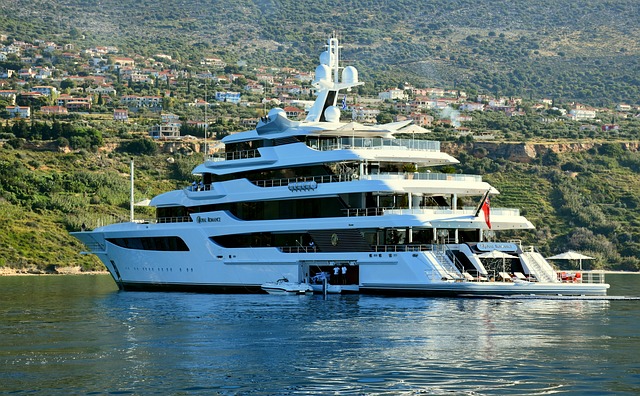
Future of Charter: All-Electric Yachts Taking Over?
In Sweden, the world's first autonomous electric marine vessel has traveled between two islands and it is natural that this journey reminds us of the possibilities regarding an unmanned future of yachting. We are getting used to seeing driverless cars around but when it comes to sea vessels it is considered a newly developing concept, especially with human transporting marine vessels. In this sense, it is highly significant that a ferry was controlled over 600 kilometers away and successfully completed its journey between the two central islands of Sweden.
Certain changes are to be expected in the future with the integration of new concepts and characteristics to boats such as AI and other sustainable technologies. Their features will surely make some dust fly. Let’s take a glance at what these revolutionary traits might be and how they are going to shape our blue world.
Why is it important to boat enthusiasts?
We have seen all-electric, remotely controlled unmanned sea vessels used by the military before but the Norwegian company Brodrene AA’s new ferry aroused huge excitement among the boat industry. MF Estelle, an all-electric autonomous ferry completed the test runs and traveled between the islands in Sweden and this gives an idea on where the future of seafaring lies. Since every other tool and vehicle is going electric, this phenomenon comes as a natural outcome of the sustainable development efforts.
Newly developed boats have the chance to shape the future since they are using the AI to its limits. All the obstacles and intersections to be detected by artificial intelligence’s algorithms and the vessel to be changed courses accordingly. It brings to mind the probable dangers of such a system. As we’ve seen in cars, autonomous boats can have a transitional period to check the compatibility of the captainless master cabin.
What are the charter ads going to be turned into?
As you know CharterAds publishes thousands of ads from all over the world and allows its users to get to know boats deeply. With CharterAds dozens of advertisement websites gathered together and the most distinctive features they serve also brought together. Changing the course/concept of the yachts can affect the advertising industry due to the transformation of data and site structures of websites and automations.
What does the future hold for charter ad businesses? Let’s predict one by one:
1. New Filters: A third, even fourth option to be added to the filter on the crew section and it won't be a two option filter anymore. "Captainless" and "Automated" alternatives are the ones that come to mind in the first place. A yacht without a captain yet has crew onboard is possible since the guests would want to spare captains' charges but still want to keep the crew to serve the dishes… In a transition period, it can be the main topic of conversation to assign “remote captains”
2. Prices: Another change might be expected on the economic outlook of the sector. Charter price range could expand due to addition of the new players to the arena. Newly developing technologies tend to be more expensive since they have higher costs being new to the ecosystem that they are doing business in.
3. Easy updates: The integration of Internet of Things has the chance to contribute the data updates on our websites. Systems can have live data from boats directly, of course, without offending personal data regulations. The idea of users managing their renting in a smoother way with more statistics is surely a factor that ensures the user satisfaction rates.
4. Changing the surface area: New concepts are deniably expected to enhance the surface area on boats. Boat designs are to be more adaptable to different types of cargo and missions. This flexibility will be especially useful for yachting where different equipment or layouts may be needed depending on the route. Modular systems can also be more easily upgraded with new technologies as they become available.
5. Increased Safety and Security Safety: At sea security has always been a priority, and future ships will incorporate even more advanced safety systems. From better fire detection and suppression systems to enhanced collision avoidance technology, the ships of the future will prioritize protecting both cargo and crew. Furthermore, cybersecurity will become a crucial aspect of maritime safety, as the increasing reliance on digital systems makes boats more vulnerable to hacking.
In conclusion, the future of charter yachts is heading toward a more autonomous, sustainable, and intelligent era. While challenges remain, including regulatory issues and the high cost of adopting new technologies, the potential benefits—both economically and environmentally—are immense. These innovations will not only reshape the maritime industry but also play a critical role in global trade and transportation in the decades to come.
Browse Favorite Boat Locations
Croatia
10.113 (Boat)
Greece
6.073 (Boat)
Turkey
2.490 (Boat)
Italy
2.236 (Boat)
Spain
1.327 (Boat)
France
1.150 (Boat)
Germany
442 (Boat)
Bahamas
231 (Boat)
British virgin islands
210 (Boat)
Poland
207 (Boat)
Martinique
204 (Boat)
Guadeloupe
134 (Boat)
Thailand
101 (Boat)
Slovenia
96 (Boat)
Malta
90 (Boat)
Portugal
58 (Boat)
United arab emirates
33 (Boat)
United states
31 (Boat)
Mexico
26 (Boat)
Monaco
26 (Boat)
Dominican republic
15 (Boat)
Netherlands
4 (Boat)
U.s. virgin islands
3 (Boat)
Trogir
1.803 (Boat)
Lefkada
1.539 (Boat)
Athens
1.454 (Boat)
Sukošan
1.311 (Boat)
Biograd na moru
1.141 (Boat)
Fethiye
815 (Boat)
Pula
737 (Boat)
Palma de mallorca
733 (Boat)
Göcek
718 (Boat)
Šibenik
711 (Boat)
Split
668 (Boat)
Marmaris
630 (Boat)
Le marin
601 (Boat)
Lávrion
600 (Boat)
Tortola
572 (Boat)
Volos
569 (Boat)
Dubrovnik
518 (Boat)
Zadar
498 (Boat)
Road town
484 (Boat)
Kaštela
404 (Boat)
Preveza
393 (Boat)
Rogoznica
375 (Boat)
Gouvia
363 (Boat)
Punat
359 (Boat)
Pirovac
328 (Boat)
Salerno
296 (Boat)
Procida
286 (Boat)
Primošten
280 (Boat)
Cannigione
279 (Boat)
Skiathos town
274 (Boat)

